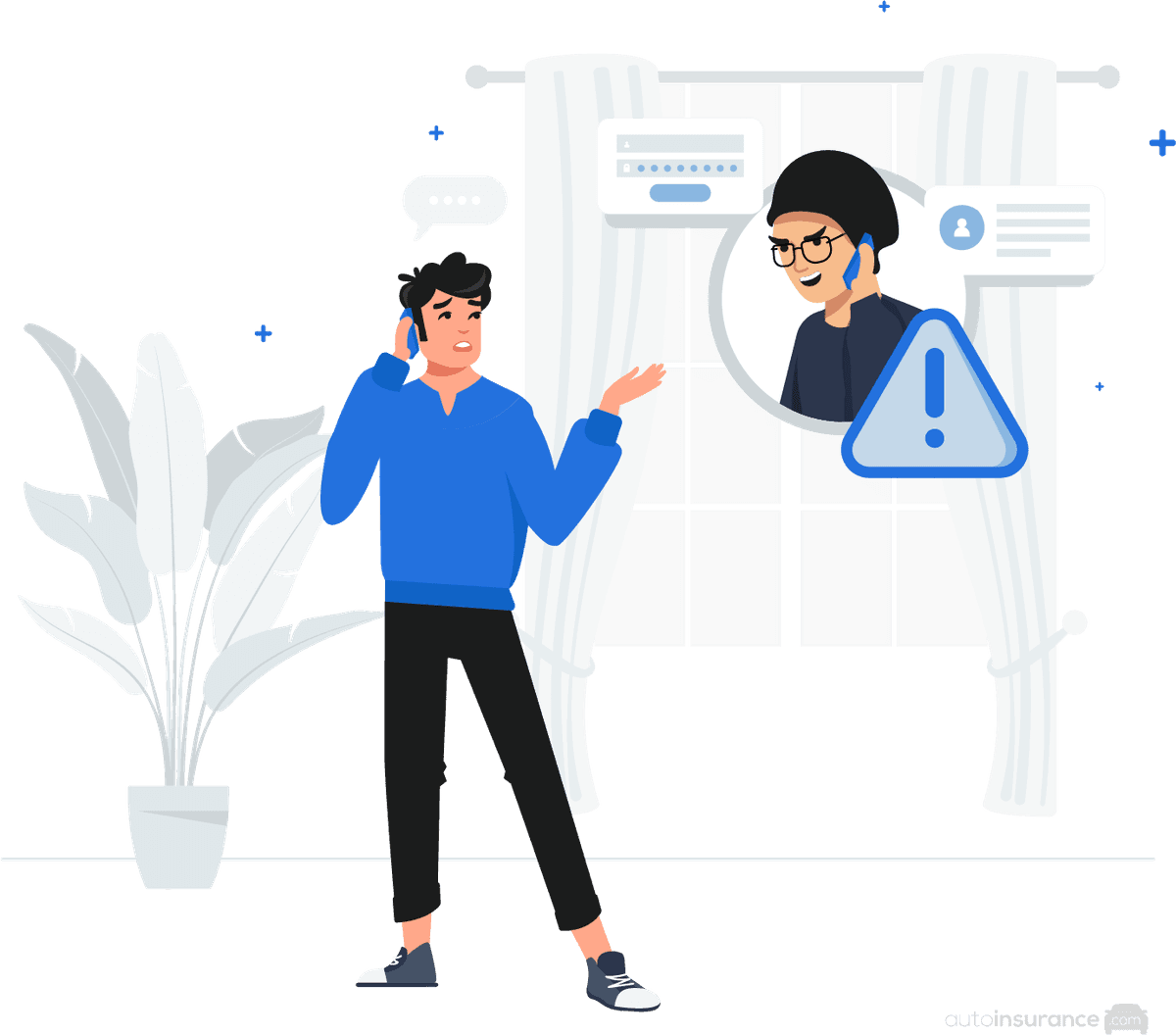
Extended Car Warranties: Are They Worth It?
Whether to buy an extended warranty depends on the reliability of your vehicle, status of the manufacturer’s warranty, and more.
Get quotes from providers in your area

When you purchase a car from a dealership, you’re offered a ton of services, from in-house auto insurance to extended warranties. In this article, we’re talking about extended car warranties: what they are, the pros and cons, and whether or not you should get one for yourself. The truth is that most people never have to use their extended warranties, but they still may be worthwhile for some people. Read on to find out which camp you fall into.
Are Extended Car Warranties Worth It?
Extended car warranties can be worth it for some drivers, but not for everyone. These plans help cover repair costs after the manufacturer’s warranty expires, which can provide peace of mind if your car is prone to mechanical issues or has expensive parts. However, extended warranties often come with exclusions, deductibles, and limited coverage, and many drivers never use them. To decide if it’s worth it, consider your car’s reliability, how long you plan to keep it, and whether you can afford surprise repair bills out of pocket.
When to Consider Buying an Extended Car Warranty
- Your vehicle’s factory warranty is about to expire, and you plan to keep the car long-term.
- You own a high-mileage or unreliable vehicle, especially one with a history of costly repairs.
- You don’t have enough savings to cover unexpected repair bills.
- You’re offered an exclusionary warranty (covers most components except those specifically excluded).
- You drive frequently or long distances, increasing the likelihood of wear and tear.
- The warranty is backed by a reputable company with strong reviews and clear terms.
When Not to Buy an Extended Car Warranty
- Your car is still under the manufacturer’s warranty.
- You drive a reliable vehicle with low repair frequency (e.g., Honda, Toyota, Lexus).
- You can comfortably pay out of pocket for unexpected repairs.
- The plan is an inclusion warranty (only covers listed parts) with limited coverage.
- The provider has bad reviews or unclear contract terms.
- The cost of the warranty exceeds expected repair costs.
What Is an Extended Car Warranty?

An extended car warranty is a warranty that covers issues with mechanical or electrical parts that the regular manufacturer’s warranty may not cover. Extended car warranties are completely optional.
Pros
- Protection from high repair costs: Helps cover major repairs after your manufacturer’s warranty expires.
- Predictable expenses: Offers peace of mind with fixed costs instead of unexpected bills.
- Optional extras: Many plans include perks like roadside assistance, rental car coverage, or trip interruption protection.
- Useful for high-risk vehicles: Especially helpful if you own a model known for mechanical issues.
- Increased resale value: Some extended warranties are transferable, which may boost your car’s resale appeal.
Cons
- Limited coverage: Some plans only cover a narrow list of parts (inclusion warranties).
- High upfront or monthly costs: You might pay more in premiums than you ever claim in repairs.
- Exclusions and fine print: Many warranties have strict terms, requiring specific maintenance or denying common repairs.
- Not always used: If your car stays reliable, the warranty may never pay for itself.
- Potential provider issues: Some third-party companies have poor reputations or go out of business, leaving you uncovered.
Pros
Extended car warranties may cover problems that the manufacturer’s warranty doesn’t, like engine defects. Depending on what region of the country you live in, the cost of auto repairs can be high without extended warranties. In 2023, according to the most recent data from CarMD, the region with the highest cost of engine-related repairs was the West at an average of $437. These repairs were cheapest in the Midwest, with a total average of $393.1 The idea behind extended car warranties is that they will cover these costs, but we’ll get into exactly what they cover below.
Cons
Extended car warranties are yet another expense that may not pay for themselves, if they don’t cover anything or if the warranty company finds reasons to deny claims. Also, depending on your manufacturer’s warranty, your extended car warranty may overlap with your existing coverage.
Tip
To check if your car is still under its factory warranty, call your dealership with your vehicle identification number and mileage handy.2
What Do Extended Car Warranties Cover?
Here’s what extended car warranties cover and don’t cover, generally.
What They Cover
What extended car warranties cover depends on the type of warranty. There are two main types: original equipment manufacturers and aftermarket/third-party warranties.
- Original equipment manufacturers: Otherwise known as OEMs, these warranties come from the car manufacturers directly. While powertrain warranties cover engine/transmission defects, bumper-to-bumper coverage options, or limited warranties, OEMs cover things like the major components under the hood, power seats, electronics, and navigation systems. OEMs extend the length of the coverage and the allotted mileage of your existing warranty, given that they come from the same manufacturer by definition. Some OEMs even include roadside assistance, which is a nice touch if you don’t already have this service.
- Aftermarket/third-party warranties: Aftermarket warranties are from third-party vendors. The coverage is often more limited than with OEMs, so you may only be able to get your car fixed at certain places. Plus, you’ll probably have to pay for the services at the repair facility or shop and then be reimbursed, which could be inconvenient and time-consuming.3 If you still prefer to buy your extended car warranty from a third party, make sure to choose a trustworthy company (more on that below).
What They Don’t Cover
- No matter which type of warranty they are, extended car warranties don’t cover routine maintenance, otherwise known as wear and tear.4
FYI
Wear and tear includes tire replacements, oil changes, windshield wiper fluid replacements, etc.
Aftermarket and Third-Party Warranties
If you don’t buy your extended warranty from your vehicle’s manufacturer, you can also buy it from a third party. This is otherwise known as an aftermarket warranty.
Definition
An aftermarket warranty is a third-party warranty that’s similar to OEMs, but it may have exclusions or limits on where you can get your vehicle fixed and more. Also, there’s no guarantee that OEM parts will be used. These limitations make aftermarket warranties more affordable than OEMs, in general.
Types of Aftermarket Auto Warranties
Most third-party companies divide their warranties into different levels of coverage. See the example below from American Auto Shield:
| Coverage level | Diamond | Platinum | Deluxe | Bronze | Aluminum | Tech Plus | PT Gold | Powertrain |
|---|---|---|---|---|---|---|---|---|
| Type | Exclusionary | Component | Component | Exclusionary | Component | Component | Expanded | Enhanced |
| Air conditioning | Yes | Yes | Yes | Yes | Yes | No | Yes | No |
| Alternator | No | No | No | No | No | Yes | Yes | No |
| ABS pump | No | No | No | No | No | Yes | No | No |
| Audio center | Yes | Yes | No | Yes | Yes | No | No | No |
| Backup camera | No | No | No | No | No | Yes | No | No |
| Backup sensors | No | No | No | No | No | Yes | No | No |
| Brake system | Yes | Yes | Yes | Yes | Yes | Yes | No | No |
| Control modules | No | No | No | No | No | Yes | No | No |
| Cooling system | Yes | Yes | Yes | Yes | Yes | No | Yes | No |
| Drive axle | Yes | Yes | Yes | No | No | No | Yes | Yes |
| DVD player | No | No | No | No | No | Yes | No | No |
| Electrical | Yes | Yes | Yes | Yes | Yes | No | No | No |
| Electronic hi-tech | Yes | Yes | Yes | Yes | Yes | No | No | No |
| Engine | Yes | Yes | Yes | No | No | No | Yes | Yes |
| Fuel delivery system | Yes | Yes | Yes | Yes | Yes | No | Yes | No |
| GPS/navigation system | No | No | No | No | No | Yes | No | No |
| LCD screen | No | No | No | No | No | Yes | No | No |
| Power windows motors | No | No | No | No | No | Yes | Yes | No |
| Radio | No | No | No | No | No | Yes | No | No |
| Seals, sealing gaskets, and boots | Yes, on a stand-alone basis for the parts listed | Yes, on a stand-alone basis for the parts listed | Yes, on a stand-alone basis for the parts listed | Yes, but only in conjunction with the repair or replacement of a covered part. Stand-alone repairs aren’t covered. | Yes, but only in conjunction with the repair or replacement of a covered part. Stand-alone repairs aren’t covered. | No | Yes, but only in conjunction with the repair or replacement of a covered part. Stand-alone repairs aren’t covered. | Yes, but only in conjunction with the repair or replacement of a covered part. Stand-alone repairs aren’t covered. |
| Starter | No | No | No | No | No | Yes | Yes | No |
| Steering | Yes | Yes | Yes | Yes | Yes | No | No | No |
| Sunroof / convertible top motor | No | No | No | No | No | Yes | No | No |
| Suspension | Yes, except for shocks and struts | Yes, except for shocks and struts | Yes, except for shocks and struts | Yes, except for shocks and struts | Yes, except for shocks and struts | No | No | No |
| Transfer unit 4×4 | Yes | Yes | Yes | No | No | No | Yes | Yes |
| Transmission | Yes | Yes | Yes | No | No | No | Yes | Yes |
| Turbocharger | Yes | Yes | Yes | Yes | Yes | No | No | Yes |
| Water pump | No | No | No | No | No | No | No | Yes5 |
Each level comes at a different price, but to find out your pricing options, you’ll need to request quotes from companies directly.
How Do Aftermarket Auto Warranties Work?
Here’s how aftermarket auto warranties work:
- You’ll find out where you can get your car fixed from your warranty provider.
- You’ll have to pay your deductible before your coverage will kick in.
- The repair shop will fix your car but, again, not necessarily with OEM parts.
- You’ll pay out of pocket for the repairs.
- Your provider will reimburse you, which could take months.
Do I Need an Aftermarket Auto Warranty?
Aftermarket auto warranties make more sense for some vehicles than others. We recommend getting one if:
- Your car’s warranty has run out.
- Your vehicle isn’t very reliable.
- The warranty is cancelable, so you can get a prorated refund.
- You have a separate budget for maintenance, as most extended warranties won’t cover it.
The Cost of Extended Car Warranties
The cost of extended car warranties varies, but a sample price would be in the $1,500 to $1,850 range, with deductibles ranging from $0 to $250. Learn more about the best extended car warranties to dive deeper into warranty costs.
How Do Extended Car Warranties Work?

Extended car warranties work similarly to auto insurance policies. You’ll choose a deductible, and then, if you have a warranty from your manufacturer, it will cover certain repair costs. On the other hand, if you have a third-party warranty, you’ll have to pay for repairs and then get reimbursed later.
How Long You’re Covered
Extended warranties last for either a time period or a mileage, whichever comes first. While different warranties have different limits, an example would be a 20-year, 25,000-mile warranty.
Can You Transfer It?
Whether or not you can transfer your warranty depends on the company, so you should definitely ask your salesperson about this before you buy.
How to Check if a Car Is Under a Warranty
If you’re not sure whether or not your vehicle is under warranty currently, follow these steps to find out:
- Find the vehicle identification number (VIN), which is unique to your vehicle. You can find it in these spots:
-
- Outside of the windshield
- On the inside of the driver’s side door
- Under the hood
- In the spare tire compartment
- In your vehicle’s paperwork
- Check your odometer for the mileage.
- Call the dealership where you bought your vehicle or any of the vehicle manufacturer’s dealerships to ask about your warranty.
How to Get the Best Extended Car Warranty
If you’ve weighed the pros and cons and decided to purchase an extended car warranty, make sure you get the best one for your needs.
Extended Car Warranty Companies
We’ve outlined everything you need to know about extended warranties from the most trusted companies around if you decide to go the third-party route. Choosing the right company is the most important part of purchasing an extended car warranty.
Make sure to research the company and check your state’s consumer protection office for complaints, along with the Better Business Bureau. Look out for reviews that mention customer service, monthly payments, and the vehicle service contract.
We’ve also reviewed several extended warranty providers:
UPDATE:
As of 2024, Protect My Car is no longer selling warranties to new customers. It will continue to provide service to existing customers.
Extended Car Warranty Scams

Auto warranty scams are less common than they were in 2021 and 2022, but they still happen. You may receive a call or text from someone claiming to be a manufacturer, insurance provider, or dealer, offering you a warranty or telling you that your current warranty has expired. To avoid being scammed:
- Don’t share your personal information: If you don’t already know the person on the line, don’t tell them any of your personally identifiable information (PII), such as your Social Security number, full name, payment information, bank account information, or driver’s license number.
- Don’t pick up unknown numbers: Your safest bet is to only respond to calls from numbers you recognize. But remember that scammers can spoof caller ID, so even if it says it’s from a certain company, it may not be. To check, go on the company’s website and cross-reference the phone number.
What to Do If You’re Scammed
Today’s scammers are pretty sophisticated, so it’s easy to fall for an auto warranty scam. If you’re scammed, file a complaint with the Federal Communications Commission, or FCC. You won’t get any individual damages, unfortunately, but you could help the FCC identify and prosecute scammers.
You can contact the FCC in three ways:
- File an online complaint at https://consumercomplaints.fcc.gov/hc/en-us.
- Call 1-888-225-5322.
- Write the FTC at the following address, including your name, contact information, address, and information about your complaint:Federal Communications Commission
Consumer and Governmental Affairs Bureau
Consumer Inquiries and Complaints Division
45 L Street NE
Washington, D.C, 20554
Check out the FCC’s website to see an audio sample of a real-life auto warranty scam.6
If you’ve paid the scammer, also make sure to contact your bank or credit card company.
Auto Warranty vs. Vehicle Service Contract
What’s the difference between an auto warranty and a vehicle service contract?
| What it includes | Auto warranty | Auto service contract |
|---|---|---|
| Pays for certain repairs and services | Yes | Yes |
| Is a warranty under federal law | Yes | No |
| Sold by manufacturers | Yes | Yes |
| Sold by dealers | Yes, for extended aftermarket warranties | Yes |
| Sold by independent companies | Yes, for extended aftermarket warranties | Yes |
| When you buy it | Time of purchase | Time of financing |
| Could cover routine maintenance like oil changes | No | Yes |
Let’s explain both in a little more detail.
Auto Warranty
An auto warranty is a contract that says a company will fix certain malfunctions or defects in a given time period. Sometimes, for both used cars and new cars, these warranties are included in the car’s purchase price.
Auto Service Contract
An auto service contract, otherwise known as an extended warranty, is a contract where a company agrees to perform or pay for certain services and repairs. You can buy it at any time, and unlike auto warranties, auto service contracts could cover wear and tear like oil changes. However, they’re probably not worth it if your auto warranty is still active, as most people never have to use their auto service contracts anyway.
Recap: Are Extended Car Warranties Worth It?
Extended car warranties aren’t essential for everyone, but they can offer peace of mind if your vehicle is prone to breakdowns or your budget can’t absorb surprise repair costs. They’re most valuable for drivers with older, less reliable cars or those planning to keep their vehicles well beyond the factory warranty period. If you drive a newer or reliable car and your budget can afford repairs, extended warranties aren’t usually worth it.
Not all plans are created equal—so be sure to read the fine print, compare providers, and weigh the costs against the likelihood of repairs. Make sure the warranty is exclusionary, meaning it covers everything except what it excludes specifically. Avoid inclusion warranties, which only cover the specific items listed. Compare the cost of the warranty to the estimated cost of repairs it would cover.
Before spending money on a warranty, also make sure you’re getting the best deal on your car insurance. Compare top providers and find the best auto insurance for your needs to protect yourself from unexpected costs on and off the road.
Citations
CarMD Vehicle Health Index 2024. CarMD. (2024).
https://www.carmd.com/assets/pdf/VHI/2024/CarMD_Index_APR24_042424.pdfHow to Check if a Car Is Still Under Warranty. J.D. Power. (2021, Feb 10).
https://www.jdpower.com/cars/shopping-guides/how-to-check-if-a-car-is-still-under-warrantyUnderstanding Extended Warranties. Edmonds. (2017, Aug 15).
https://www.edmunds.com/auto-warranty/understanding-extended-warranties.htmlWhat is the difference between a manufacturer’s warranty and an extended vehicle warranty or service contract? Consumer Finance Protection Bureau. (2016, Aug 5).
https://www.consumerfinance.gov/ask-cfpb/what-is-the-difference-between-a-manufacturers-warranty-and-an-extended-vehicle-warranty-or-service-contract-en-825/Vehicle Service Contracts. American Auto Shield. (2022).
https://americanautoshield.com/coverage/vehicle/Watch Out for Auto Warranty Scams. FCC. (2022).
https://www.fcc.gov/sites/default/files/watch_out_for_auto_warranty_scams.pdfShould You Walk Away from a Used Car Extended Warranty? AutoTrader. (2021, Aug 5).
https://www.autotrader.com/car-shopping/buying-a-used-car-should-you-walk-away-from-an-extended-warranty
